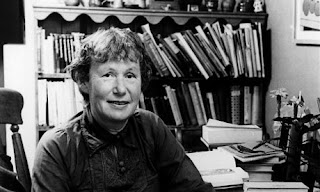That got me thinking about opening lines. Unlike War and Peace, Anna Karenina does open memorably, with the famous aphorism:
All happy families are alike; each unhappy family is unhappy in its own way.Unforgettable, certainly . . . but tell me, does it ring true to you? It's so familiar that I've always taken it as a commonplace, but the more I actually attend to it, the more I doubt. It strikes me as more a flourish than a thought, an overly writerly phrase rather than a genuine observation about human character. It's the sort of phrase that a writer lays down in the fervid inspiration that accompanies the beginning of work on a novel . . . and then should be sure to go back and cut.
It simply doesn't fit, either with what immediately follows or with the long rest of the novel. If Tolstoy hadn't already had such a strong epigraph--"Vengeance is mine. I shall repay."--he would have been better off relegating his opening to that status and beginning the book with the second paragraph instead:
All was confusion in the Oblonskys' house. The wife had found out that the husband was having an affair with their former French governess, and had announced to the husband that she could not live in the same house with him. This situation had continued for three days now, and was painfully felt by the couple themselves, as well as by all the members of the family and household.Wouldn't it be better to be plunged directly into that irony and bustle, rather than being given Tolstoy's solemn pronouncement first? Isn't that paragraph far more true to the feeling of Tolstoy's world, in all its particularity?
Not that Tolstoy's alone in falling for his own beauties. Take L. P. Hartley, whose similarly well-known lines that open The Go-Between I adapted for the title to Monday's post:
The past is a foreign country. They do things differently there.Those lines work better than Tolstoy's with what's to come: in the immediate moment, the discovery by an adult of a journal he kept as a boy; in the course of the novel, his realization that his youthful self was missing, or misunderstanding, key elements of a drama in which he had played an unwitting part. But even so, those lines stand out as too chiseled, too separate; they'd do much better as an epigraph--that's the proper place for such an overarching, guiding observation.
And what about Dickens, and his (apparently Tolstoyan, per Michael Steele) "best of times, worst of times"? Those lines, bombastic as they may be, at least are tied to the book's theme of duality (overplayed though it may be in this weakest of Dickens novels)--and, because the passage is rarely quoted in full, it's easy to forget that Dickens intentionally deflates the tone by the end, a reminder that his true genius lay in his eye for the comic and self-important:
It was the best of times, it was the worst of times, it was the age of wisdom, it was the age of foolishness, it was the epoch of belief, it was the epoch of incredulity, it was the season of Light, it was the season of Darkness, it was the spring of hope, it was the winter of despair, we had everything before us, we had nothing before us, we were all going direct to Heaven, we were all going direct the other way--in short, the period was so far like the present period, that some of its noisiest authorities insisted on its being received, for good or for evil, in the superlative degree of comparison only.Steele, it's only fair to say, is far from the first politician to fail to read far enough into a quotation to reach the sting in its tail. Methinks Dickens would have put him solidly into that category of "noisiest authorities."
For my money, however, Dickens's best opening lines come from the book of his that has been most effaced, as a piece of writing, by its many adaptations--A Christmas Carol:
Marley was dead: to begin with. There is no doubt whatever about that. The register of his burial was signed by the clergyman, the clerk, the undertaker, and the chief mourner. Scrooge signed it: and Scrooge's name was good upon 'Change, for anything he chose to put his hand to. Old Marley was as dead as a door-nail.Is there a better way to open a story that's to begin with the visit of a ghost?
In fact, as far as setting a tone and giving the reader a sense of what's to come, I can only think of one line that beats it:
When the phone rang, Parker was in the garage, killing a man.That's from Richard Stark's Firebreak. What more do you need to know, other than how much time you've got left for reading before you have to drag yourself away to bed?
